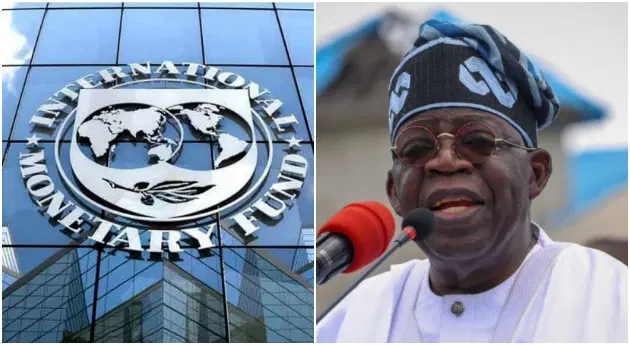
Washington DC — The International Monetary Fund (IMF) has advised the Federal Government of Nigeria to revise its N54.99 trillion 2025 national budget in light of declining oil prices on the global market.
This recommendation was made public in the IMF’s latest Article IV Consultation Report on Nigeria, released yesterday in Washington DC. The Fund acknowledged the country’s economic growth prospects, projecting a 3.4% GDP growth rate in 2025 driven by increased oil output and declining inflation. However, it warned that the current budget framework does not adequately reflect prevailing market conditions, especially the lower-than-anticipated oil revenue.
“While reforms have brought improvements, the 2025 budget needs to be recalibrated to account for lower oil prices,” the report stated.
The IMF commended the Central Bank of Nigeria (CBN) for its recent monetary policy actions, including exchange rate liberalization, which have spurred capital inflows and contributed to naira stabilization. It also supported the CBN’s ongoing tight monetary policy stance, noting that it should be sustained until inflation moderates further.
“The CBN’s move to end deficit monetization and strengthen governance is commendable and lays the groundwork for an inflation-targeting framework,” the report noted.
Despite steady economic growth, the IMF highlighted that per capita gains remain insufficient and have not translated into broad-based improvements in living conditions. It observed that poverty and food insecurity are on the rise, and emphasized the need for more inclusive growth strategies.
“Agriculture remains subdued due to persistent security concerns and declining productivity,” the Fund added.
In terms of inflation, the IMF noted significant progress, with consumer prices dropping to 23.7% year-on-year in April 2025 from an average of 31% in 2024, based on the rebased Consumer Price Index by the Nigerian Bureau of Statistics.
The report warned of increased downside risks due to global economic uncertainties. These include potential further drops in oil prices, rising international financing costs, and deteriorating domestic security, all of which could impact Nigeria’s fiscal stability, growth prospects, and food security.
The IMF Executive Board endorsed the findings of the staff report, acknowledging the positive impact of recent reforms but cautioning that these benefits are yet to reach most Nigerians. The Board emphasized the need for flexible and responsive policymaking to mitigate emerging risks and protect macroeconomic stability.
Key policy recommendations included enhancing agricultural productivity, addressing security challenges, bridging infrastructure gaps — especially in electricity — and increasing investments in health and education.
Reacting to the IMF report, Nigeria’s Minister of Finance and Coordinating Minister of the Economy, Mr. Wale Edun, assured that the government remains proactive in addressing the identified risks.
In a statement issued by the ministry’s Director of Information and Public Relations, Mr. Mohammed Manga, Edun affirmed that the 2025 budget implementation is being closely monitored to preserve reform gains and promote economic resilience.
“The government continues to monitor global oil and trade developments and is taking responsive steps to safeguard growth and ensure economic stability,” Edun stated.
As Nigeria navigates the complex global economic landscape, the IMF stressed the need for sustained reforms and inclusive policies to ensure that economic progress translates into tangible benefits for all citizens.
Comments